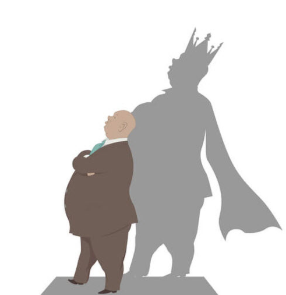How does minimum wage affect prices? This is a question that has been debated for years, and is still a major debate today. Should we raise the minimum wage to $15 an hour? Should we keep it the same? Should we even have one?
In order to understand the answer to this question, you need to understand some other things first:
- The Mentality
- Wage-Price Spiral
- The Effects of Raising the Minimum Wage
The Mentality
Advocates for raising minimum wage believe that the lower-income class would benefit from an increase in minimum wage. They believe that it will help equalize the wealth gap between the 1% and the rest of the 99%.
The thought process behind this statement is that the 1% would pay the extra wages to help the 99% make more money.
Advocates against raising minimum wage believe that raising the minimum wage would lead to higher prices, higher unemployment rates, stricter work conditions, and less opportunity for the lower and middle class.
The thought process behind this statement is that small business would get squeezed and forced to declare bankruptcy, and large corporations will find ways to push the extra expenses onto employees, or customers.
Wage-Price Spiral
One way to raise the minimum wage is for the government to simply raise them, without forcing anyone else to pay. To the mind that hasn’t taken economics, this seems like a great thing!
Before you factor in inflation.
When you raise the minimum wage for employees, it can be expected that a business will raise the prices of the products to mitigate that, which is punishing the employee when they try and buy something from anywhere.
This produces inflation, because you are essentially in the same scenario as before, except now you are dealing with more dollar bills.
This begins what is called the Wage-Price Spiral. Wages go up, and businesses must respond, so they raise prices. Now that prices are higher, the it requires more money to purchase the items. Now, people need more money for what they want. So now they beg for a wage increase again, and so the cycle continues.
Wouldn’t it be much simpler for the business to just stop taking so much profit, and share a little of it?
The honest answer is…
No.

Most businesses don’t have an amazing amount of profit like a lot of people think they do. They may have a larger paycheck than the average worker, but they also have larger expenses. Typically businesses only get a 5-10% profit margin, meaning 90-95% of their earnings is reinvested in other things.
This is why they can’t afford higher wages without increasing the price, or finding some sort of other solution.
The Effects of Raising the Minimum Wage
Raising the minimum wage from an average of $7.25 to $15 an hour will cause many problems:
- Higher Prices
- Higher Unemployment
- Worse Work Conditions
- Increased Wages on All Spectrums
Higher Prices

As explained before, most businesses operate on a profit margin of 5-10%. Doubling the amount of wages paid could cut them down to 2-3%, or even below that. This is riding on a risky path, and anything could go wrong and send the business spiraling towards bankruptcy.
So the business counters this and gets back to a safe 5-10% profit margin by raising the prices on their products. This in-turn, punishes the customer for the wage increase, because the customer would really be paying for it.
Typically, the employees are also consumers at other stores, so they are essentially paying higher prices so that they have a larger wage, causing the Wage-Price Spiral to take effect.
Higher Unemployment
If a restaurant wants to keep the prices the same, they can do this by firing most of their staff. It is a general rule of principle that if you have to pay double the wages, you need to fire half of your workers to maintain your profit margin.
Most businesses can’t produce as effectively with only half of their workers, so they will typically combined higher prices with letting some workers go, to ease the blow on either side.
“Bob, 16 years old, currently works after school at a grocery store. He earns $5.50 an hour. Suppose the state legislature passes a law specifying that they minimum dollar wage a person can be paid to do a job is $6.00 an hour. The legislators say their intention in passing the law is to help people like Bob earn more income. Will the $6.00 an hour legislation have the intended effect? Perhaps not. The manager of the grocery store may not find it worthwhile to continue employing Bob at $6.00 an hour. In other words, Bob may have a job at $5.50 an hour, but not $6.00 an hour.” –Roger A. Arnold, Macroeconomics, Third Edition
Essentially, higher wages will benefit some people, and leave a lot more people searching for jobs. This is also expressed by economist Campbell Mcconnell:
“On balance, however, the evidence seems to suggest that periodic increases in the minimum wage are followed by employment declines in affected industries. Empirical studies suggest that the unemployment effect is particularly pronounced among teenage workers. The other side of the coin, of course, is that those who remain employed receive higher incomes and tend to escape poverty. The overall antipoverty effect of the minimum wage may thus be a mixed, ambivalent one.” –Campbell R. McConnell, Economics, Seventh Edition
Worse Work Conditions
For the lucky workers that kept their job, they now have to pick up the slack for the workers that were let go, because the business still has shareholders to please, and it still has to grow.
Expect shorter breaks, if any at all, longer overtime hours, longer shifts, a faster pace, more impatience, and overall… a bad experience.
Increased Wages on all Spectrums
If a mechanic is making $15 an hour, or a carpenter is making $15 an hour, do you expect them to do the same work for the same pay that someone working a minimum wage job is?
No!
They have spent years practicing their craft, and do much harder work than most people at a minimum wage job, and they expect compensation. Expect these ages to go up to $25-$30 an hour, if not more.
People making minimum wage will be in a similar situation as before in the best-case scenario. If not, they’ll be more hard-pressed to afford food.
Why The “How Things Used To Be” Argument Doesn’t Work
One argument has always been, “A family in the 1940’s could work a 40-hour week at minimum wage and provide for their family.”
Wrong.
They could work a 40-hour week and make a decent living, just like now, but it wasn’t on minimum wage.
According to the U.S Department of Labor, the minimum wage in 1940 was $0.30. This amounts to a weekly income of $12, a biweekly income of $24, a monthly income of $48, and an annual income of $576, before taxes.
According to the US Tax Foundation, the Federal Tax for minimum wage workers was 4%. This leaves the 40-hour weekly minimum wage worker with $553. That leaves them with a monthly income of about $46, not including sales tax.
The average monthly rent in 1940 was around $20 a month.
Your rent wiped you down to $26 monthly. Let’s add up the other expenses:
- Gasoline: $0.18 per gallon – Assuming an extremely conservative 60 mils driven per week with the average 12 MPG 1940s model vehicle, that is $3.60 monthly.
- Food: 1lb of bacon – $0.55. 1lb of chicken – $0.55. 1lb of hot dogs – $0.55 1 dozen oranges – $0.45. You do the math here, based on how much you think you could eat.
- Electricity: You could ration your electricity too, but the argument is that you should be able to live comfortable on minimum wage. Average monthly bill: $28. You are most certainly wiped out.
Let’s not even get into state tax, water bill, other drinks you may want, if you want to see a movie, go to a diner, go see a friend, buy someone a gift.
It would be hard enough living by yourself, imagine a family. No, the argument of “how it used to be” doesn’t work. Minimum wage was never intended to provide for a family.
Most people that work 40-hour weeks aren’t in poverty. Most people that work 40-hour week minimum wage jobs are in poverty, and it’s easy to see why.
Ask the Professionals
Let’s ask some leading macroeconomists for their opinion on raising the minimum wage- since their job is to study how economies work.
“The unintended consequence is that to get or retain jobs at the higher imposed wage rates, job applicants will tolerate less pleasant and stricter working conditions, less vacation, less insurance, less employer-supplied work clothing and tools, shorter coffee breaks, more intense labor, less job security, and more occasions of temporary layoffs when demand is transiently low.” –Armen A. Alchian and William R. Allen (Ed. Jerry L. Jordan), Universal Economics
“In the United States, for example, more than 95% of all workers paid by the hour already earn more than the minimum wage. A minimum wage, however, will decrease employment among low-skilled workers. The more employers have to pay for low-skilled workers, the fewer low-skilled workers they will hire.” –Tyler Cowen and Alex Tabarrok, Modern Principles of Economics, Second Edition
“Nearly one-half of those employed at the minimum wage are members of families with incomes above the U.S. average. More crucially, if $200 a week isn’t an adequate income, nothing per week is even less adequate. A large increase in the legal minimum wage would produce more income for some, but it would mean less income for a substantial number who could not obtain employment at any significantly higher wage… Battles over the minimum wage do sometimes seem to be mostly opportunities for people with different political views to call each other insulting names.” –Paul Heyne, Peter Boettke, and David Prychitko, The Economic Way of Thinking, Eleventh Edition
“Although this law is often presented as protective of the unskilled, it is precisely they whom it excludes from the labor market. At a minimum wage of $5.15 per hour, someone who produces $3.00 of output per hour will not be hired to work. Overwhelming empirical evidence has convinced most economists that the minimum wage is a significant cause of unemployment, particularly among the unskilled.” –Steven E. Landsburg, Price Theory and Applications, Fifth Edition
How Does Minimum Wage Affect Prices?
So, how does minimum wage affect prices?
Prices go up!
“The idea of raising the minimum wage is noble and commendable, but many of the arguments rely upon raw emotion and neglect sound economic ramifications that will adversely impact the same people it’s trying to help.” -Jack Kelly, Forbes



